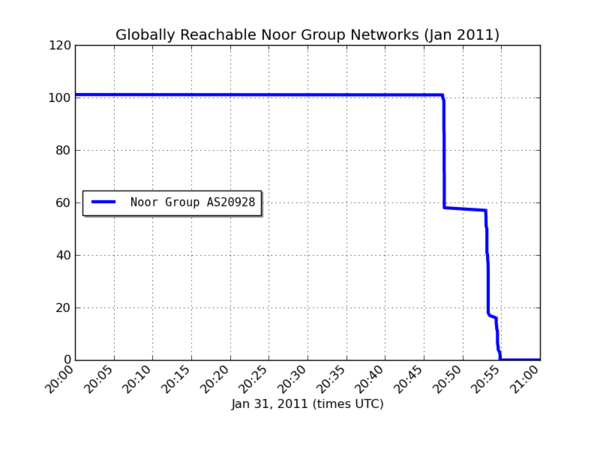The internet is about to become a political topic . . . not the internet itself, but the prices Canadians will have to pay to get online:
Industry Minister Tony Clement says he is looking closely at the “usage-based billing” decision issued last week by the CRTC that has consumers, businesses and citizen groups’ decrying what they see as a price hike for Canadian Internet services that could clamp down on innovative technologies.
“I can assure that, as with any ruling, this decision will be studied carefully to ensure that competition, innovation and consumers were all fairly considered,” Mr. Clement said in a statement obtained by The Globe and Mail.
The decision will allow large Internet service providers (ISPs), such as Bell Canada and Rogers Communications, to charge smaller ISPs that lease space on their networks on a volume basis. Executives at smaller providers have already begun phasing out popular “unlimited” Internet packages because it has become economically unfeasible to continue offering them.
I wondered how long the current situation would last: Bell and Rogers used to tout their “unlimited” internet access, but if you read the fine print, it wasn’t really “unlimited”. Like any resource that is “free”, some will use far more of it. In the early days of broadband, that didn’t matter, as there were not enough users to consume all the bandwidth anyway. Now that there are many more subscribers, the heavier bandwidth users are causing problems.
In addition to the sheer number of broadband customers, another change that was not fully foreseen was the way those customers use their internet connections has changed. When Bell and Rogers got into this market, there were far fewer options for using the internet. You could visit websites all day long, read email, listen to cheesy renditions of popular music, and (for some) download pirated movies for hours on end.
Now that TV and movie viewers have better viewing options through their internet connections than they get over-the-air or through cable or satellite TV, the nature of internet traffic has been revolutionized, and not in a way that Bell and Rogers were anticipating.
Update: Michael Geist thinks I’ve been taken in by the big guys’ propaganda:
[. . .] arguments in support of UBB are frequently accompanied by the claim that the approach is like any other service — you pay for what you use. Yet Bell’s UBB plan approved by the CRTC does not function like this at all. Its plan features a 60 GB cap with an overage charge for the next 20 GB. After 80 GB, there is no further cap until the user hits 300 GB. In other words, using 80 GB and 300 GB costs the same thing. This suggests that the plan has nothing to do with pay-what-you-use but is rather designed to compete with similar cable ISP bandwidth caps. In fact, Primus has gone further, stating “It’s an economic disincentive for internet use. It’s not meant to recover costs. In fact these charges that Bell has levied are many, many, many times what it costs to actually deliver it.”
He also points out that the Canadian market is very tightly controlled by a oligopoly of key players:
While the CRTC’s UBB decision provides the immediate impetus for public concern, the reality is that the bandwidth cap issue in Canada is far bigger than just this decision. The large Canadian ISPs control 96% of the market, meaning the independent ISPs are tiny players in the market. Even if the CRTC denied Bell’s application for wholesale UBB, it would still only constitute a tiny segment of the overall Canadian Internet market.
As virtually every Canadian Internet user knows, the Canadian market is almost uniformly subject to bandwidth caps — the OECD reports that Canada stands virtually alone with near universal use of caps. The scale of the Canadian caps are particularly noteworthy — while Comcast in the U.S. imposes a 250 GB cap, Canadian ISPs offer a fraction of that number:
- Videotron starts at 3 GB for Basic Internet, 40 GB for its next plan and tops at 200 GB for very fast speeds at $149/month
- Rogers Lite service caps at 15 GB, it fastest service stops at 175 GB
- Bell’s Essential Plus service offers a 2 GB per month cap, climbing to 75 GB for its fastest service
The caps are already having a consumer impact as Bell admits that about 10% of its subscribers exceed their monthly cap (a figure that is sure to increase over time). Moreover, the effect extends far beyond consumers paying more for Internet access. As many others have pointed out, there is a real negative effect on the Canadian digital economy, harming innovation and keeping new business models out of the country. Simply put, Canada is not competitive when compared to most other countries and the strict bandwidth caps make us less attractive for new businesses and stifle innovative services.




